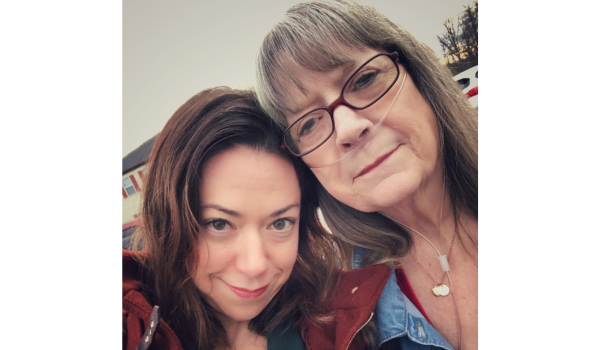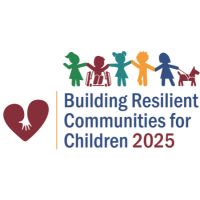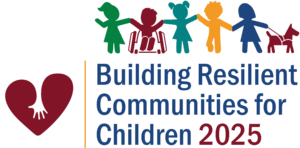When my mom died in 2021, I was catapulted into a foreign land of grief and hurt. Those who have lost close loved ones will recall the intensity of those first few days of grieving, when it is hard to eat or even breathe or to complete simple tasks – let alone the complicated logistics often required of the bereaved. It was disorienting and surreal to watch the wider world continue around me with no recognition of the monumental shift that had occurred. The world doesn’t stop of course for our private pain, so it was soon time to return to daily responsibilities and to find a way to exist in this new land. Time passed, and I increasingly felt a strong desire to do something in honor of my mother – to channel her story and our connection into actions that could support hope and healing for others. This drive, and a lucky Google search, led me to the Attachment and Trauma Network (ATN) where I currently serve on the Board of Directors.
Let Me Introduce you to My Mom
I’ll start with the rough stuff of early childhood: ACE score of 9, poverty, alcoholism, and ongoing sexual abuse by a family member. Her mother and stepfather moved the family around frequently as they looked for ways to make money. For a single academic year, I found five report cards spanning multiple states. She wrote extensively about her childhood in the journals I found after she passed, where she describes having no friends, feeling intense shame, and being made fun of because of her old clothes and shoes stuffed with cardboard to cover the holes in the bottom. At age 13, any stability she did have was destroyed when a car carrying her, her mother, and two others lost control, going over a bridge into the creek below – killing her mother instantly. In the months that followed, the individual who had been sexually abusing her since early childhood began bringing other men into the home for the same purpose. She ran away, lived briefly on her own, and when the authorities became aware, she was sent to a “school for troubled girls” where, as mom wrote, “the rules were strict and the spankings were hard” and she felt lonely with no friends. She witnessed her step-father’s death shortly after and ultimately dropped out of school in the 7th grade at age 15 and married.
Extensive research links high ACE scores to chronic disease and adverse health outcomes as well as social and emotional problems in adulthood, and sadly my mom was no exception. She struggled with depression and anxiety and was diagnosed at an early age with hypertension. And like many affected by trauma, she found short-lived relief from her suffering in behaviors such as smoking, drinking, and eating sweets (though I feel like she’d want me to add here that she stopped all her “bad habits” in her later years, with the exception of her sweet tooth.) In her mid-50s, her health declined quickly as she began having trouble walking due to peripheral artery disease and diabetes, increasingly experiencing severe chronic pain and accumulating numerous physical and mental health diagnoses. Though as Bessel Van Der Kolk has written, “diagnosis by so many unrelated labels is developmental trauma at its core.” And I saw firsthand how the visceral pain and shame from her early trauma manifested emotionally and physically over the course of her life.
To understand my mom, you have to understand at least a bit about her trauma and the ways it shaped her world view. However, stories of these tragic events and the suffering they caused cannot capture her beauty, strength, love, and (yes) sense of adventure and fun. I hope you’ll indulge me in sharing a few memories to paint a picture of her as the multifaceted woman that she was:
When I was 500 miles away and struggling with feeling like an outsider as a first-generation college student, it would have been so easy for her to say “just come back home.” And as a mother to a young child myself, I am certain that a part of her yearned to do just that. Instead, she shared her unwavering conviction that I could do absolutely anything and that I had just as much right to be there as anyone else. Through her eyes, I was able to see myself as capable and strong.
There was no better shopping partner for antique and thrift stores; we spent untold hours perusing old and strange things together – creepy clown toys from the 1950s, old newspapers, vintage jewelry, sunglasses, and more. My camera roll full of “sunglass selfies” and the various treasures in my home from our escapades bring me so much joy.
She loved sharing her “country cooking” with my “city husband” and delighted in watching him enjoy her meatloaf, open-faced roast beef sandwiches, and biscuits.
When I took her to see an Elvis impersonator in Gatlinburg, TN, I caught a glimpse of what she might have been like as a typical teenage girl with stars in her eyes and a crush on her favorite artist – singing, cheering, taking photos, screaming, and (I slightly feared) imminently about to join him on stage!
Why ATN
Mom’s death left me with so much energy and love that no longer had a place to go. When I read about ATN, their specific focus on attachment really resonated with me, as well as their view of children impacted by trauma as so much more than their stories or their struggles – as whole human beings with dreams and strengths and beauty. My heart breaks for my mother as a little girl without the safe and trusting relationships she deserved, and I think of how powerful ATN programs focused on therapeutic parenting and trauma-informed schools could have been for her. ATN educates, enables, and convenes individuals who are passionate about this work and driven to disrupt the status quo and create meaningful systemic change. I can’t think of a better way to honor my mother than to direct my energy into an organization that offers hope and support for healing.
Excerpted from a letter she left for me to find after she died, my mom’s gravestone reads: “I am always with you as long as you keep me in your heart.” My commitment to ATN is one important way that I keep her in my heart every day.
The Author
Kimberly Smathers has 20 years of experience – as a business leader, advocate, consultant, and researcher – in working toward person-centered and equitable approaches to enhancing health and well-being. In her consulting practice, she advances system change opportunities to promote the well-being of individuals living with complex clinical and social needs, including experiences of trauma, neurodiversity, disability, discrimination, and socioeconomic disadvantage.
Kimberly joined the ATN board to support the critical work of the organization in honor of her mother – a trauma survivor, beautiful soul, and a cycle breaker – after she passed in 2021. She is passionate about shaping the systems that touch our daily lives (healthcare, education, workplaces and beyond) to be not only trauma-responsive but also harmonious with science-backed evidence on what human beings need to thrive, build resilience, and live joyful and healthy lives.
Kimberly received her MBA from the Northwestern University Kellogg School of Management and currently lives in Chicago with her husband, son, and cat.



